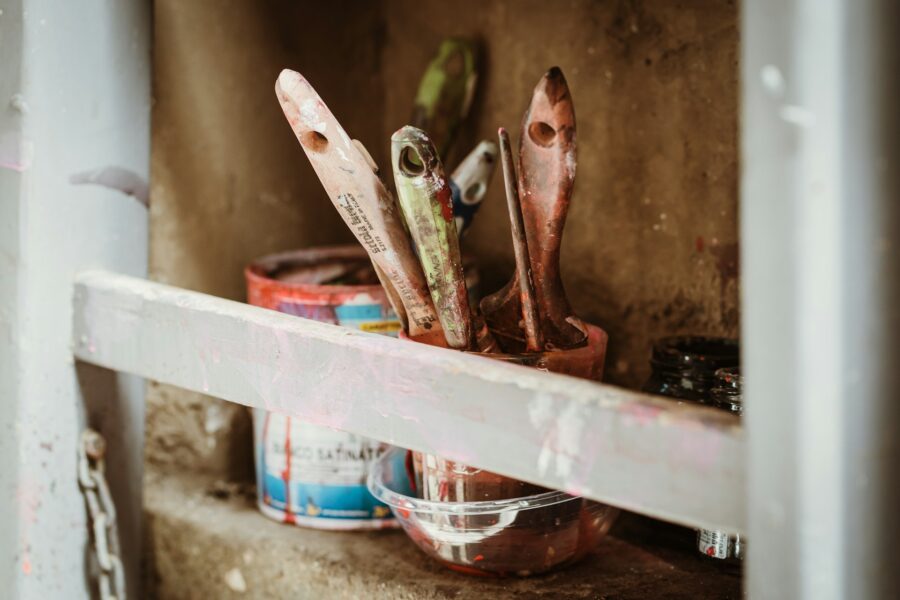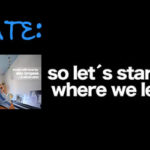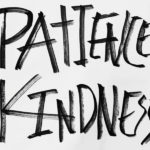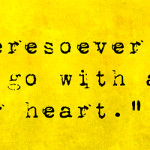
Good Morning, Afternoon or Evening!
I put my paintbrush down long enough to read this very good article.
If you aren’t frightened by what is passing as “normal” and acceptable in today’s world, you aren’t living in the “othering” world I live in.
Hugs to each and every one of you.
Vicki
Radical Belonging in an Age of Othering
Joe Primo, Grateful Living
Realizing that I am, from the very beginning, embedded in a network of relationships makes me ready for an important insight: the innermost essence of the word “I” is relationship. ~Br. David Steindl-Rast, You Are Here
There is an epidemic of loneliness. The U.S. Surgeon General Vivek Murthy, says, “If we fail to build more connected lives…we will continue to splinter and divide until we can no longer stand as a community or a country.” As we try to understand this societal illness, I think we need to ask whether we are sick from loneliness or from not belonging — to each other and ourselves.
In the depths of our isolation we quickly encounter a darkness. It is our world closing in on itself. Our entanglement with each other becomes disentangled. We are no longer woven. We are a single thread under tension, pulled taut. We are at risk of far more than fraying.
John A. Powell, Director of the Othering and Belonging Institute, says that we create “othering” to create belonging. Think about this for a moment. In order to feel at home in ourselves and with others, we rally around contempt, prejudice, oppression, and exclusion. If we want to understand this epidemic, it seems that this may be a source of sickness. Could it be that our need to belong took a misguided route and fueled a pandemic of othering?
This pandemic of othering is sustained by binary thinking, which dismantles the inherent dignity of those different from us — religiously, racially, culturally, politically, intellectually, etc. Rather than thriving in relationship with each other, many groups find themselves in profound opposition. What is the point of this opposition? What are groups and people trying to protect? For some, it may be the comfort they find in their structure, order, and perspective. For some, it may be a desire to feel the nurturing and supportive sense of belonging, but the desire has become confused with fitting in.
Belonging is where dignity, the sacred, and redemption meet. It is where you can be wholly you while also being in relationship with those wildly different from you. Belonging is a both/and.
It’s important to distinguish “fitting in” from belonging. They are two very different experiences. One has a gatekeeper and requirements. The other is innate. Fitting in asks us to mold ourselves to things like ideologies, appearances, and dogmas. You can fit in if you subscribe to the group’s prescriptions. Belonging, on the other hand, is not about being affirmed for your likeness to others or your methodical virtue-keeping. Belonging is not interested in groupthink and mutual pats on the back.
The paradox of belonging is much like the paradox of love. Br. David Steindl-Rast says that “to live means to be in relationship” and that requires “love in action.” In order to put love into action and experience belonging, you also have to be at home in yourself. When you belong to yourself, you are better equipped to see, appreciate, and respect someone else’s dignity. This is because you can imagine, remember, or acknowledge the pain you’ve endured and how it has shaped your perspective and behavior — the unkind and hateful words that are only one grievance away from being spoken, the wars you might be tempted to fight if the opposition was on your stoop, the destruction you might cause if all the power was yours, the food you would steal for a child, the walls you might build if fear was your guidepost, the sicknesses that could fill your mind if you believed your fears. When you can imagine being othered then you can see the only path is understanding.
Given the profound consequences of loneliness and isolation, we have an opportunity, and an obligation, to make the same investments in addressing social connection that we have made in addressing tobacco use, obesity, and the addiction crisis. ~Dr. Vivek Murthy
A grateful orientation to life is in opposition to othering. Rather than unifying around exclusions, a practice of grateful living challenges us to seek, observe, and understand (Stop. Look. Go) the many ways in which we are never fully alone, never independent or separate from others. The practice of grateful living helps us address the origin of our societal ailments because it illuminates our interconnectedness by focusing on and acknowledging the details of every lived moment and the network of people required to sustain our lives. This perspective understands that when we lose sight of our inter-relationality we can trust that everything will quickly go sideways, making us sick with fear, greed, violence, exploitation, loneliness, despair, and war. These and other detriments to our well-being fill the enormous cavern where belonging should live and thrive.
To avoid falling into the trap of the rage machine or binary thinking, the practice of grateful living asks us to ground ourselves in the root belief that “life is a gift.” From this root, we grow a perspective that all people have inherent value. Rather than anyone being dispensable and disposable, we know that to be alive means to be in possession of something sacred. And when the sacred is not easily discoverable in another, gratefulness invites you to look more deeply for it like a hatchling in the grass. Stop. Look. Keep looking. When you’re tempted to quit, stop once again and look more. This is what it means to be alive — to be in relation and always on the lookout for all the opportunities to put love into action.
If loneliness is a malady born from a plague that is unraveling our interconnectivity, then gratefulness is the only remedy large enough to treat an illness that is pulling us apart when life requires us to put love into action and remain in relation.
This perspective challenges you to observe someone’s worth or worthiness, even when it is far from sight. Worthy of what, you might ask. Well, what are you worthy of in your life? Love, acceptance, safety, nourishment, shelter, redemption, and connection are a few things your dignity bestows on you. When we individually or collectively other, we strip people of this worthiness. We categorize people into good and bad, worthy and unworthy. We need to ask ourselves how anyone can survive these dichotomies. The response to loneliness and “othering” must be radical belonging — this is the challenge, this is the work of grateful living.
If loneliness is a malady born from a plague that is unraveling our interconnectivity, then gratefulness is the only remedy large enough to treat an illness that is pulling us apart when life requires us to put love into action and remain in relation.






























